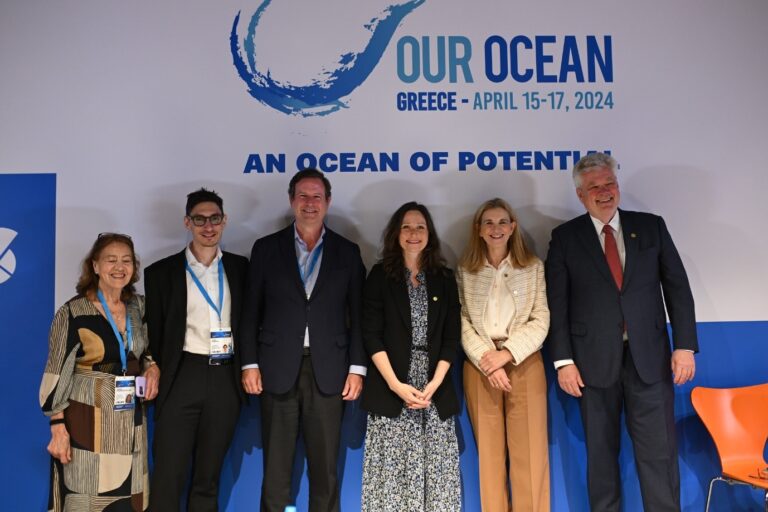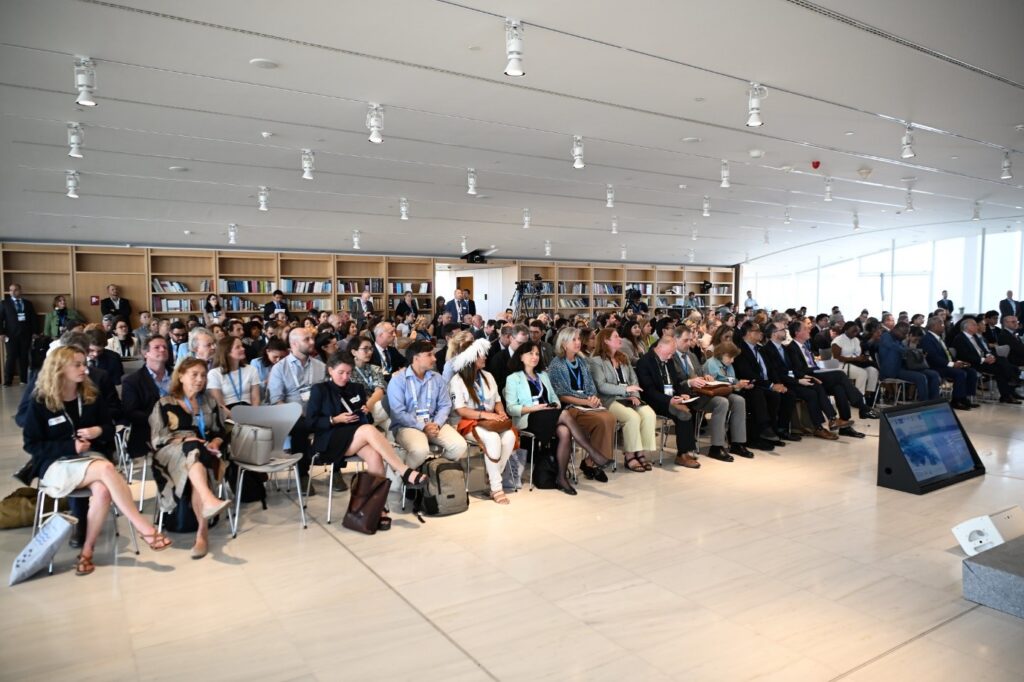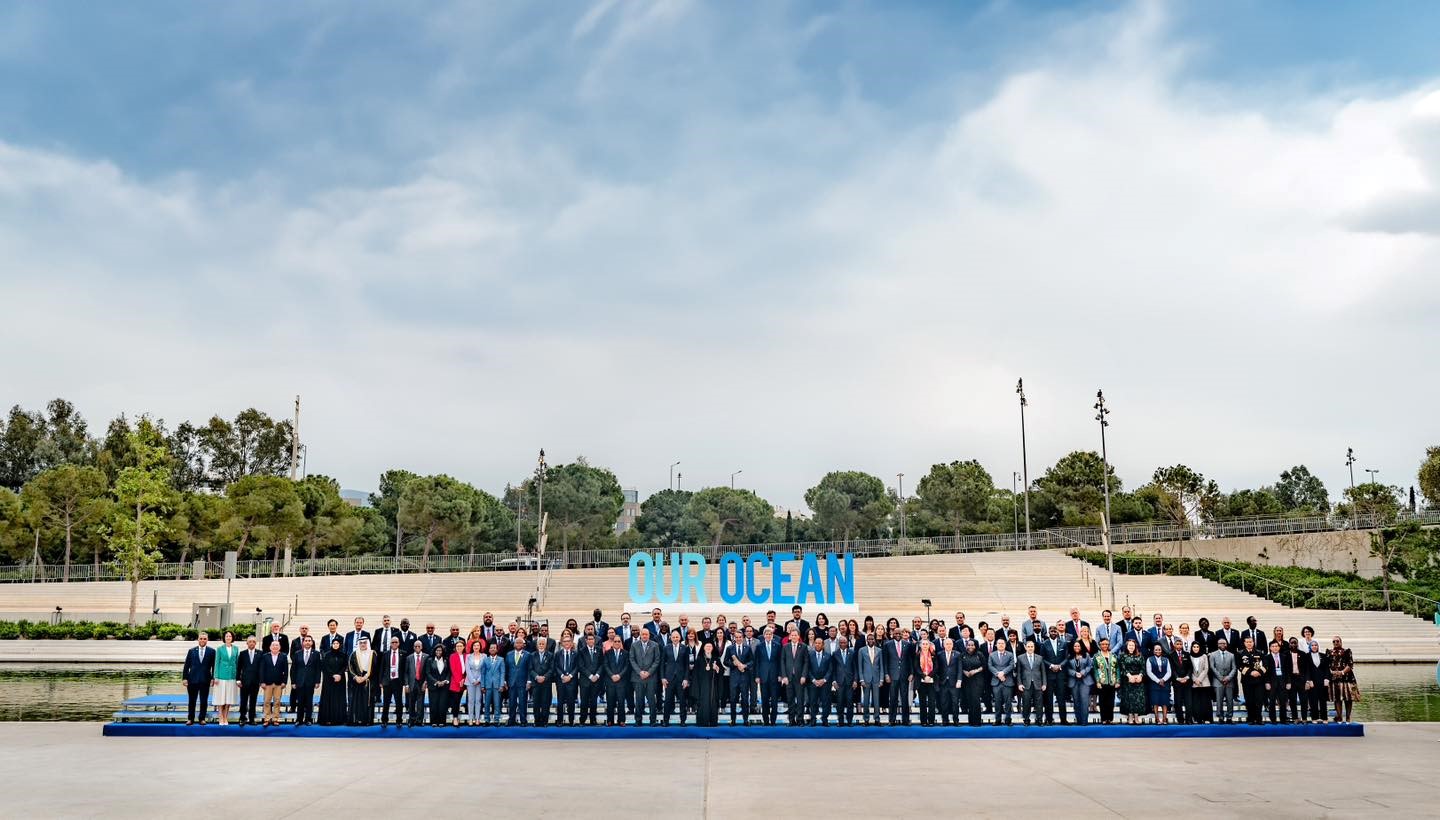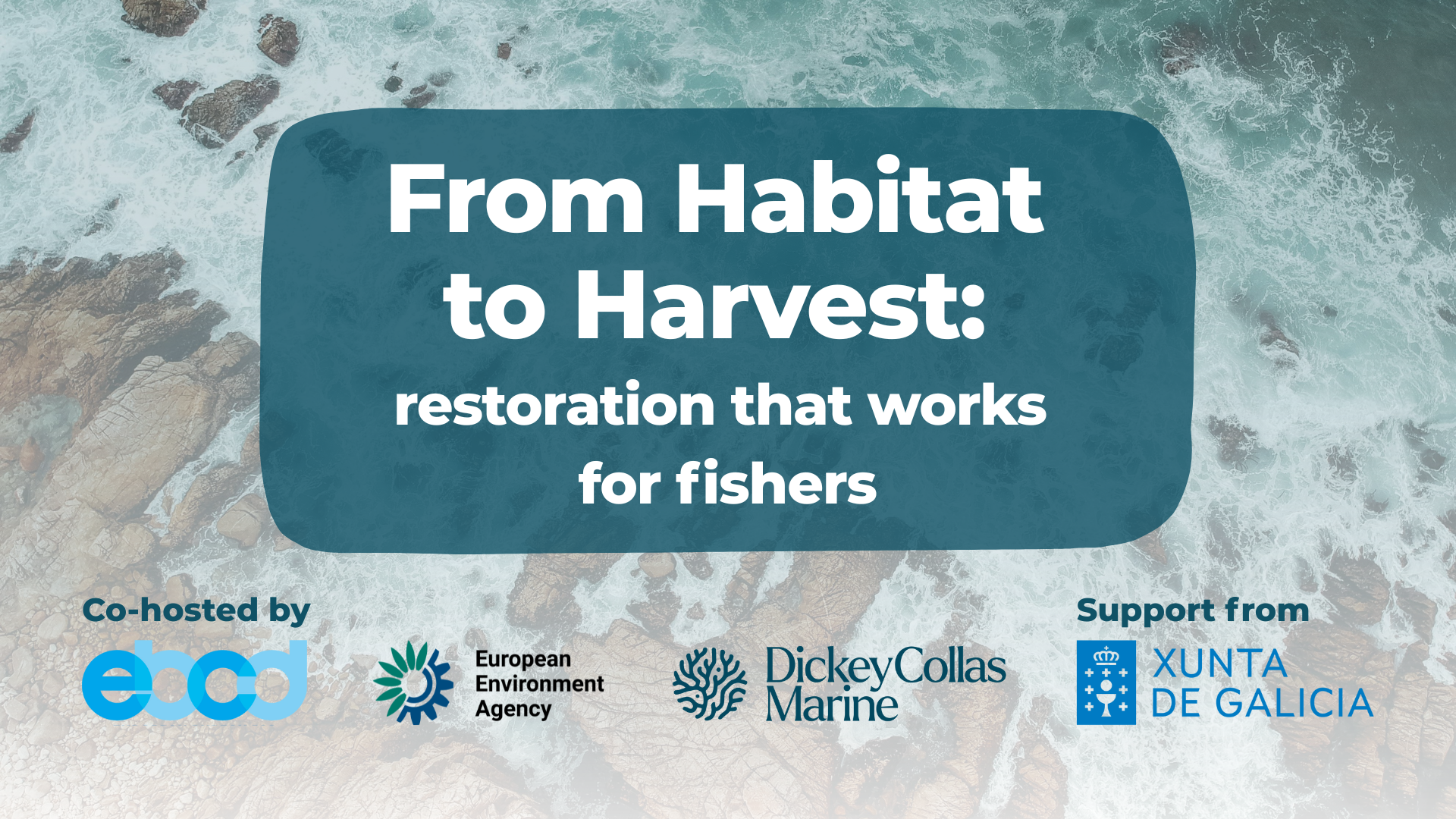EBCD actively participated in the ‘Our Ocean Conference’ (OOC), which has held on 15-17 April in Athens, Greece. This conference, held on an annual basis, was first launched under the initiative of the U.S. Department of State and the Secretary of State John Kerry in 2014, with the original objective of inviting pledges – both financial and political – towards the advancement of Marine Protected Areas’ (MPAs) creation. Since then, it has become a forum for dialogue that connects governments, intergovernmental organizations, academia, the private sector, and NGOs in support of the conservation and sustainable use of the oceans. By hosting the 9th version of OOC, Greece reaffirmed its commitment to promote blue economy and address key topics, such as biodiversity loss, climate change, sustainable fisheries, marine pollution – especially from plastics -, and opportunities for sustainable maritime transport (see all commitments made by Greece here). In this context, heads of states – mainly from developing countries – and funders from all around the world, committed to the advancement of actions towards healthy oceans, via allocating a total of $11,351,896,867 coming from 469 new pledges. All in all, more than 2,000 participants joined this high-level event which was invitation-only, while discussions during the conference shed more light on blue skills, youth engagement and empowerment, reaching the 30×30 target, the need for the BBNJ ratification and the promotion of well-informed and science-based policymaking.

Aiming at highlighting the importance of sustainable management of the oceans, EBCD organized 2 side-events during the conference (out of the 82 which were successfully accepted) – both on 16th April. The first one, entitled ‘Food security: The role of sustainable aquatic blue foods in the green transition’ served to promote blue foods and a much-needed balance among conservation, sustainable use of natural resources and food security. Specifically, the reason behind this event’s organization has been the fact that although blue foods are well-recognized for providing multiple benefits (via their low-carbon footprint, high-proteins and essential nutrients’ value), they are often overlooked in the discourse. As a result, this event served to reiterate how sustainable fisheries and responsible aquaculture are vital for our future livelihoods, and can help us achieve food security and nutritious food, within planetary boundaries. In more detail, speakers welcomed the momentum achieved at international level, since blue foods were described as a game-changing solution at the United Nations Food Sustainability Summit in 2021, and highlighted that our current and future efforts need to be based on science, as well as to include people and livelihoods at their core. For blue foods to best utilize their potential, it is of significant importance to continue to promote their consumption, and generate more social acceptability around them; this can be achieved via better education efforts, communication campaigns and media relations, partnerships between various stakeholders, and a dynamic social and environmental responsibility program.

During the second side-event on ‘High ambition and partnerships for the High Seas’, which EBCD organized in collaboration with the High Seas Alliance and more partners, the need to advance partnerships towards the efficient implementation of the BBNJ agreement was underlined. The new High Seas Treaty marks a key milestone for ocean governance, and while a patchwork of international frameworks and bodies have been established to facilitate its implementation, it is imperative to understand how various organisations and UN agencies will connect with each other and how the Treaty will interact with other frameworks such as the newly adopted Kunming-Montreal Global Biodiversity Framework (GBF). As a result, the event celebrated the progress made via the High Seas Treaty, and explored how it can foster inter-agency and inter-sectoral partnerships to improve the efficiency of ocean governance. As quoted by Mr. Virginijus Sinkevičius, European Commissioner for the Environment, Oceans and Fisheries, “the EU is also making all efforts to ratify the BBNJ as soon as possible, and ahead of UNOC in June 2025”, bringing us a step closer to living in harmony with nature. For BBNJ to be efficient, everyone needs to be on board, so as the international community is picking up the pace in the Race for Ratification, it is important to advance strong partnerships with all relevant stakeholders, regional intergovernmental organizations, youth groups, NGOs and indigenous people. The event also served to reiterate the importance of regional cooperation and the significant role of Regional Fisheries Management Organisations (RFMOs) towards balancing environment, society and economics – as underlined by Dr. Darius Campbell of behalf of NEAFC, regional strengths are key especially when it comes to science, assessments, monitoring and control.




